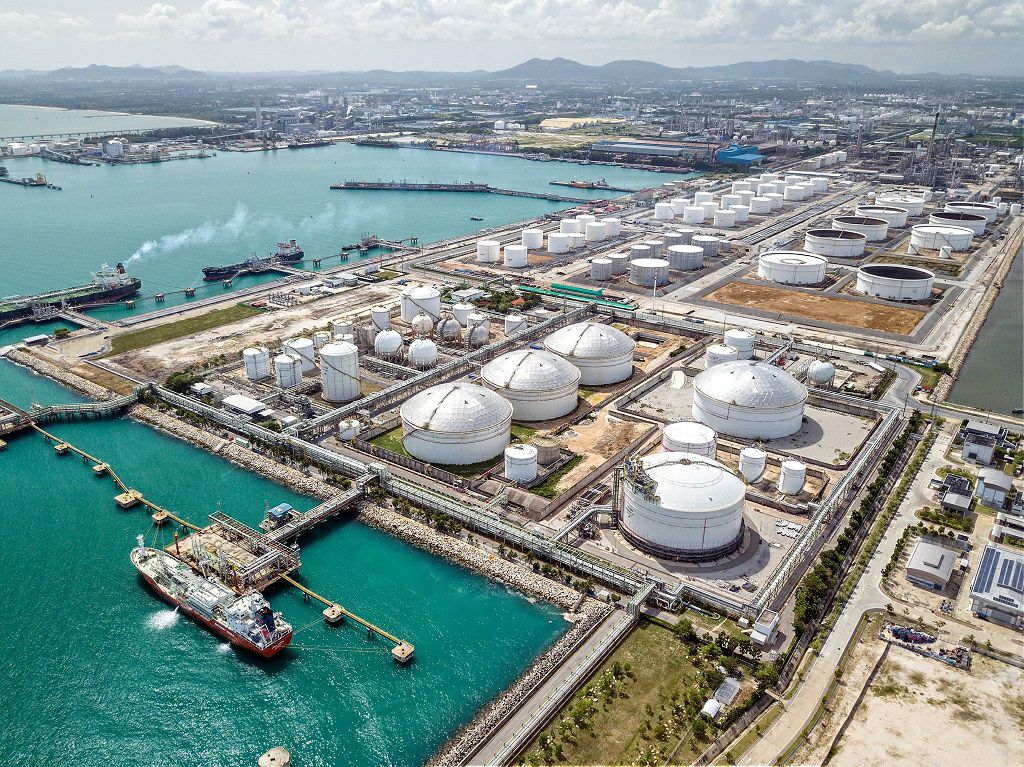“The evaluation of Thailand’s Eastern Special Development Zone Act B.E. 2561 (2018) (‘EEC Act’) in 2024 must be carried out with meaningful participation from all stakeholders, and ensure compliance with Thailand’s international human rights obligations,” concluded participants at a dialogue hosted by the International Commission of Jurists (ICJ), Land Watch Thai, EEC Watch, and ENLAW Thai Foundation on 8 June 2023 in Bangkok.
Participants included 21 affected individuals residing in the areas of the Eastern Economic Corridor (‘EEC’) in Thailand’s eastern coastal provinces of Rayong, Chonburi, and Chachoengsao.
The dialogue provided a platform for affected individuals and civil society actors to share key human rights concerns arising from the implementation and enforcement of the EEC Act, as well as their recommendations for improving the law.
Participants also learned about the upcoming evaluation process and the possibility of their involvement in it. They urged the Office of the Eastern Special Development Zone Policy Committee, the agency responsible for the evaluation, to facilitate and encourage public awareness and participation in the evaluation process by making information widely available.
Participants also identified several problematic aspects of the EEC Act, including its potential facilitation of adverse human rights impacts. These include an overly broad discretionary power of the Eastern Special Development Zone Policy Committee and their lack of a consultative and inclusive approach; reports of large-scale housing and land evictions without adequate compensation for affected communities and individuals, irrespective of their legal title; difficulties faced by displaced communities in accessing means of livelihoods with inadequate government support; weakened environmental regulations, and a lack of public participation in the Environmental Impact Assessments (EIA) and Environmental and Health Impact Assessment (EHIA).
Participants offered recommendations which include amending the EEC Act to:
- Ensure that decisions potentially impacting communities and the environment are made in full consultation with affected individuals and communities;
- Ensure that public hearings and consultations, including in the EIA/EHIA process, involve advanced dissemination of relevant information by authorities and companies, allowing stakeholders sufficient time to understand proposals and provide meaningful responses;
- Mandate the conduct of human rights due diligence (HRDD) prior to new activities or significant business decisions or changes in operation;
- Ensure that any evictions are only carried out in full compliance with all international human rights law and standards and as a last resort after exploring all feasible alternatives, and that when evictions take place affected persons receive compensation and alternative arrangements that accord their self-identified needs;
- Provide effective, prompt, and accessible judicial and non-judicial remedies to individuals affected by EEC policies; and
- Ensure that the Eastern Special Development Zone Fund will be utilized to support those affected by activities within the EEC, including those impacted by land diversion and environmental degradation.
Background
The outcomes of this meeting are intended to serve as a foundation for future public dialogues and similar engagements scheduled for later this year, and collective insights gathered from these discussions will be compiled and submitted as part of the official consultation process during the evaluation of the EEC Act by the responsible agency in 2024.
According to the Act on Legislative Drafting and Evaluation of Law B.E. 2562 (2019), all Thai laws must undergo outcome evaluation at least every five years.
The EEC Act will undergo an evaluation process by 2024, with the Office of the Eastern Special Development Zone Policy Committee responsible for conducting the evaluation.
The evaluation is to be carried out to achieve the goals of: (i) having the law to the extent of necessity, by revoking or amending those that are no longer needed, outdated, inconsistent with the current context, or burdensome for the people; (ii) aligning the law with Thailand’s international obligations under international law; (iii) reducing redundancy and conflict among various pieces of law; (iv) reducing inequality and ensuring social fairness; and (v) enhancing national competitiveness.
Photo credit: Industrial Estate Authority of Thailand
Contact
Sanhawan Srisod, ICJ Associate International Legal Adviser, e: sanhawan.srisod@icj.org
Further reading





